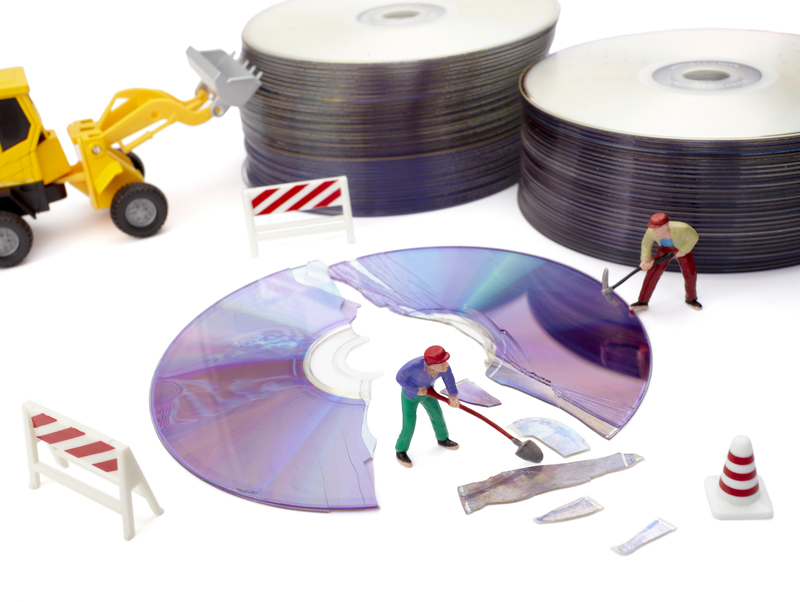How to Recycle Pots and Pans Responsibly in Your Community
As sustainability awareness grows, many people ask: How can I recycle pots and pans responsibly near me? If you're looking to give your old cookware a new life rather than tossing it in the trash, you're in the right place. This comprehensive guide explains smart, eco-friendly solutions for recycling pots and pans in your community, alongside creative reuse ideas and expert tips for each cookware material.

Why Responsible Recycling of Pots and Pans Matters
Every year, tons of cookware end up in landfills. Not only does this waste valuable resources, but it also contributes to environmental pollution and landfill overflows. Many pots and pans are made from metals, coatings, plastics, and sometimes glass--all materials that can be problematic if not handled properly.
- Metal waste such as aluminum, stainless steel, and copper can take hundreds of years to break down.
- Cookware often contains non-stick coatings or plastic handles, which complicate recycling.
- By recycling or reusing cookware responsibly, you can conserve resources, reduce waste, and support your local community's sustainability goals.
Common Types of Pots and Pans: Materials and Their Recycling Potential
Knowing your pan's material is the first step towards proper recycling. Here are the most common types:
- Aluminum pots and pans - Lightweight, common material, highly recyclable if clean and uncoated.
- Stainless steel cookware - Also recyclable, but should be separated from any plastic or silicone handles/lids.
- Copper pans - Very valuable for recycling, but must be stripped of any plastic parts.
- Cast iron skillets - Not always accepted at regular recycling centers, but long-lasting and can often be restored or reused.
- Non-stick/PTFE (Teflon) pans - Challenging to recycle due to chemical coatings.
- Ceramic and glass cookware - Generally not recycled with traditional glass or curbside programs; special handling needed.
Check for Recyclability: The First Step
Not all recycling programs accept every kind of cookware. Before you haul your pots and pans to the nearest recycling center, ensure they accept cookware and know what conditions might apply -- for example, they may require you to remove handles or lids, or only accept certain metals. Checking your local municipality's recycling guidelines can save time and reduce contamination in the recycling stream.
Step-by-Step Guide: How to Recycle Pots and Pans in Your Community
1. Evaluate the Condition of Your Pots and Pans
If your cookware is still in usable condition, reuse is always preferable to recycling. Consider if the pot or pan could benefit from a deep cleaning, re-seasoning (for cast iron), or minor repair. If not, proceed with responsible recycling.
2. Prepare Your Cookware
- Remove non-metal parts: Take off plastic, wood, or silicone handles and lids. These are generally not recyclable at metal recycling centers.
- Clean thoroughly: Wash off remaining food residue or oils to ensure materials aren't rejected by the recycling center.
3. Find a Local Scrap Metal Recycling Facility
Your city or region likely has a scrap metal yard or recycling center that accepts common cookware materials such as aluminum, steel, cast iron, or copper. Here's what to do:
- Search online for "metal recycling near me".
- Call ahead to verify if they take cookware, and if there are any requirements (such as separated materials).
- Ask about hours, drop-off procedures, and if there are any fees.
4. Curbside Recycling Programs: What to Know
Some communities accept certain pots and pans in single-stream recycling (curbside), but many do not, due to potential contamination or machinery issues. Always check your community's recycling rules before leaving cookware at the curb. If allowed, ensure it's clean and free of non-metal parts.
5. Municipal Special Collection Events
Many cities offer special recycling days for bulky scrap metal or household goods. During these events, you can drop off items like pots and pans that aren't accepted via curbside collection. Check your municipality's website or local news for upcoming events.
6. Retail Take-Back Programs
Some retailers provide take-back or trade-in programs for old cookware when you buy new products. For example, large home goods retailers occasionally have sustainability initiatives allowing you to return your old pots and pans for recycling or credit. Ask about these opportunities when shopping for replacements.
7. Donation Options: Give Your Cookware a Second Life
If your pans are gently used and still safe to cook with, consider donating them before recycling. Here are some options:
- Local thrift stores (e.g., Goodwill, Salvation Army)
- Homeless shelters, food pantries, or community kitchens
- Charity resale shops
- Online "Buy Nothing" or neighborhood sharing groups
8. Creative Alternatives: Upcycle Old Pots and Pans
Not all cookware needs to be recycled or trashed. Upcycling is a creative and eco-friendly alternative for pots and pans that are no longer ideal for cooking. For example:
- Use old pots as quirky planters for your garden or balcony.
- Turn a cast iron skillet into a rustic wall clock or decorative piece.
- Transform mismatched lids into serving trays or hanging art.
- Repurpose small pans as storage containers in your garage or workshop.
Special Considerations for Specific Materials
Recycling Non-Stick Cookware
Non-stick pans (often coated with PTFE, aka Teflon) are tricky to recycle because most scrap metal recyclers don't want the chemical coating. Here's what you can do:
- If the coating is badly damaged or flaking, the pan isn't suitable for reuse and may not be accepted at standard recycling centers.
- Some manufacturers (like Calphalon or Tefal) have take-back programs or provide guidance on proper disposal -- check their websites or customer service.
- If all else fails, safely dispose of the pan in your regular trash, but only as a last resort.
Recycling Cast Iron Pans
Cast iron cookware is highly durable and almost always salvageable. If you can't use yours, offer it to someone who can restore it, or donate it to a local metal recycler. It's a low-value scrap for recycling yards, but infinitely recyclable in the right facility.
Dealing With Pots and Pans with Plastic or Wooden Handles
Separate plastic or wooden components from metal ones before recycling. If removal isn't possible, call your recycling facility to see if they accept mixed materials or only pure metals.
Frequently Asked Questions About Pot and Pan Recycling
Can I Recycle My Pots and Pans in the Curbside Bin?
No, not always. In most communities, curbside recycling programs don't accept bulky metal items like pots and pans, as they can damage sorting equipment. Always check local guidelines and use designated scrap metal drop-off centers instead.
My Pots and Pans Are in Good Shape -- Should I Donate Instead?
Absolutely! Donation is far more sustainable than recycling for gently-used cookware. Many people need affordable cooking equipment and will gladly accept your cast-offs.
Can I Revamp Old Cookware For New Purposes?
Yes! Upcycling turns old cookware into new treasures. From creative planters to funky kitchen decor, the possibilities are endless. Search online for "upcycling cookware DIY" for more ideas!
How Do I Find a Pot and Pan Recycling Center Near Me?
Try these resources:
- Your city or county's public works department website
- National recycling locators like Earth911 or Recycling Locator
- Google "[metal recycling center] near me" and verify with a phone call
Tips for Extending the Life of Your Pots and Pans
- Follow manufacturer maintenance instructions (e.g., avoid metal utensils on coated cookware).
- Season cast iron regularly to prevent rust and maintain its non-stick qualities.
- Clean with care: Avoid abrasive scouring pads on non-stick surfaces.
- Store properly to prevent warping or chipping.

Summary: Responsible Pot and Pan Recycling in Your Community
Recycling pots and pans responsibly is a simple yet impactful way to protect the environment and support your community. By understanding local rules, preparing cookware correctly, exploring donation and upcycling options, and seeking out metal recyclers, you actively participate in the circular economy. Remember that reuse beats recycling--and recycling beats landfill disposal.
Take the time to evaluate, donate, recycle, or repurpose your unwanted cookware, and encourage friends and neighbors to do the same. Working together, communities can keep waste out of landfills and help build a more sustainable future--one pot and pan at a time!
Further Resources
- Earth911: Household Recycling Guide
- EPA: How Do I Recycle Common Recyclables?
- Your local city or county recycling office
- Manufacturer websites for take-back program information
Spread the word about responsible pot and pan recycling in your neighborhood and help make your community greener today!
